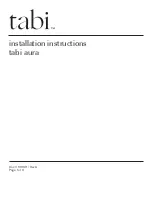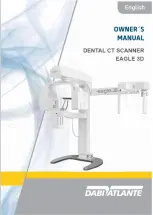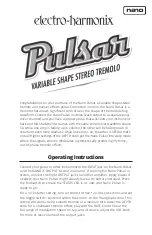
15
WARNING
DANGER
Use only ECHO cutting attachments on your unit. Do not
mount a metal blade on any unit of the GT series. Do not mount
an ordinary circular saw blade, lawnmower blade, edge/
trimmer blade, or grinding type cut off wheel on your ECHO
Weed/Grass Trimmer or Weed/Brush Cutter.
•
Always use both hands on the handles. Do not operate one-
handed.
•
Always hold the unit with the fingers and thumbs encircling
the handles.
•
Keep bystanders out of the Danger Zone (a 15-meter radius
surrounding the operator).
•
For transport in a vehicle, tie the unit down, and either
remove or shield metal blades from contact with any surface.
RAYNAUD’S SYNDROME——Some operators may develop a
condition known as Raynaud’s Syndrome affecting the hands or
arms. It is believed that the condition, brought by exposure to cold
and/or vibration, may result in tingling and burning and then by loss
of color or numbness in fingers. Even if you ECHO model has anti-
vibration mounts, we recommend your taking the following precau-
tions because the minimum exposure which might trigger the ailment
is unknown.
•
Keep your body warm, especially the head and neck, hands
and wrists, and feet and ankles.
•
Avoid awkward, unnatural, stressful grips on the unit
without losing control. Avoid hard, stiff “death grips” while
the unit is vibrating.
•
Maintain good blood circulation. Avoid smoking. Exercise
vigorously during frequent work breaks. Also limit the
amount of time you spend using this or any other hand-held
vibrating tool.
•
If you experience discomfort, redness and swelling of the
fingers followed by whitening and loss of feeling, consult
your physician before exposing yourself further to vibration
and cold.
REPETITIVE STRESS INJURIES (RSI)—Is is believed that overus-
ing the muscles and tendons of the fingers, hands, arms and
shoulders may cause soreness, swelling, numbness, weakness and
extreme pain to the areas just mentioned. Certain repetitive hand
activities may put you at a high risk for developing Repetitive Stress
Injury (RSI). An extreme RSI condition is Carpal Tunnel Syndrome
(CTS), which can occur when your wrist swells and squeezes a vital
nerve that runs through the area. Some believe prolonged exposure
to vibration may contribute to CTS. CTS can cause severe pain for
months or even years. To reduce the risk of RSI or CTS, do the
following:
•
Avoid using your wrist in a bent, extended or twisted
position. Instead, try to maintain a straight wrist position.
Also, when grasping, use your whole hand, not just the
thumb and index finger.
•
Take periodic breaks to minimize repetition and rest your
hands.
•
Reduce the speed and force in which you do the repetitive
movement.
•
Do exercises to strengthen the hand and arm muscles.
•
Wear a shoulder harness to reduce stress on our hands and
arms.
•
See a doctor if you feel tingling, numbness or pain in the
fingers, hands, wrists or arms. The sooner RSI or CTS is
diagnosed, the more likely permanent nerve and muscle
damage can be prevented.
DO NOT
OPERATE
ONE-HANDED
FINGERS AND THUMBS MUST
ENCIRCLE HANDLE
REMOVE OR
SHIELD BLADE
FOR TRANSPORT
TIE DOWN UNIT














































